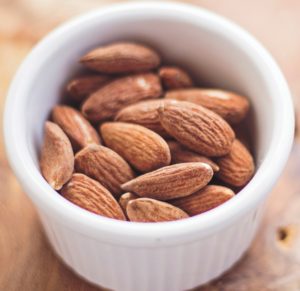The old saying goes, “You are what you eat”. We know that the way we eat has a pronounced effect on our health, weight, and ability to fight off disease. Recently we even discovered that what we eat can have a marked effect on our mental health. The term “the way we eat”, refers to the kinds of food we eat, when and how often we eat, how fast or slow we eat and the balance between protein, carbohydrates, fats, fruits, vegetables and water.
Unfortunately, many people have put an emphasis only on foods they don’t eat. For example, they might never drink colas or stay away from white, processed flour and not eat processed sugars. This is all admirable, but when it comes to health, the other part of the equation is possibly even more important. Some of my newer clients are either staying away from certain foods or over-focusing on one food (it might be pomegranates, broccoli or blueberries or any other food touted as a magic cure or super-food). It takes a lot of education and reprogramming to get people to see the bigger picture.
Barry, in his 40’s, was beginning to feel less energy, general fatigue and his weight was just starting to creep up. Although his blood pressure, sugar and cholesterol were all okay, he was also getting sick a little more often. Lower back pain was the original reason Barry came in to see me. As part of his therapy for back pain relief, Barry had to walk every day. He noticed how much better the walking made him feel, so he decided to make a concerted effort to better his health and well-being.
Nutrition and life expectancy
Nutrition is, unfortunately something most people just take for granted. Most people in today’s world don’t necessarily pay attention to what they eat and to making sure that in the course of a day, their food intake is balanced and nutritious.  If you are hungry, you take something—anything, to eat. If you are having stress in your life, then you take something to eat, thinking it will make you feel better. In any case, you most likely aren’t considering which foods have vitamins, minerals, calories or whether it is a carb, protein or fat. It was only recently that studies began to make us understand the extent of this problem.
If you are hungry, you take something—anything, to eat. If you are having stress in your life, then you take something to eat, thinking it will make you feel better. In any case, you most likely aren’t considering which foods have vitamins, minerals, calories or whether it is a carb, protein or fat. It was only recently that studies began to make us understand the extent of this problem.
Heart disease, stroke, and diabetes are the three cardio-metabolic diseases that cause the most death in the United States. A new comprehensive study now shows that there is a direct association with sub-optimal diet resulting in death from these diseases. The largest number of diet-related deaths are linked to high sodium intake, high processed meats, and high sugar-sweetened beverages. But more consumption of nuts and seeds, fish-based omega-3 fats, vegetables has shown to better health and extend lives. We see clearly that there are two sides to this equation—what not to eat, but just as important and maybe more so, what we MUST to maintain health.
So how many people per year are dying just in the United States because of problems in their diet leading to these three maladies? 400,000. That’s correct—400,000 per year. That is 4 million in a decade—all from not eating right.
Out with the bad and in with the good
As registered dietician and senior clinical nutritionist Samantha Heller said to media outlets as a reaction to this study, “If someone’s diet is low in nuts, seeds, fruit, fiber, whole grains and vegetables, then they are likely replacing those foods with less healthy options, such as deli meats, burgers, fried chicken, sodas, mac-and-cheese, sugar-sweetened beverages and other highly processed, junk, fast and prepared foods.”
But we can break this down even more. The highest proportion of deaths was estimated to be related to excess sodium intake (9.5%), followed by low intake of nuts/seeds (8.5%), high intake of processed meats (8.2%), low fish with omega-3 fats (7.8%), low intake of vegetables (7.6%) and fruits (7.5%), high sugar-sweetened beverages(7.4%), low intake of whole grains (5.9%) and polyunsaturated fats (2.3%), and high intake of unprocessed red meats (0.4%).
Dr. Dariush Mozaffarian, is the Dean or the Tufts Friedman School of Nutrition Science & Policy and he worked on this study. “Our findings suggest that nearly half of all deaths from heart disease, stroke, and diabetes are directly caused by poor diet. It wasn’t just too much ‘bad’ in the diet — much of the burden was caused by too few healthy foods, which should be emphasized as an important positive message to the public, policy makers, scientists, and industry”, Mozaffarian stated.
Never Too Late to Change
Given these facts, based on a large-scale study with good controls, it is imperative that doctors look beyond pharmaceutical interventions. Lifestyle intervention, both in the realm of nutrition and a more active lifestyle along with exercise, can accomplish more than drugs can. Physicians are not nutritionists or dieticians. However, they can advise basic changes in diet and certainly can refer patients to a registered dietician.
Even if you have been eating poorly most of your life, change at any point can make a huge difference in your health and the way you feel. Dietician Heller also points out that these changes will enhance your immune system, improves gastrointestinal and brain health, and boost energy—and that is true at any age.
Change is never easy. What should you do in order to achieve success and reach your goal of getting healthier? There is what to do and what not to do. Firstly, don’t try to bite off more than you can chew. In other words, don’t try to make a radical change and strive for perfection.
How to make changes
Decide on a few exchanges you can handle.  For instance, if you snack on a candy bars each day, exchange that for a fruit. Instead of having a deli sandwich, have lean chicken breast, with sliced vegetables, on whole grain bread. If switching from white rice or pasta is difficult, start by mixing 1/3 whole grain to 2/3 white refined grain. After a week change to 50/50, and keep moving in the direction of whole grain rice or pasta. Sprinkle seeds on your salads and use nuts as snacks. It is also essential to consume a minimum of 8 glasses of water per day and 10 is even better.
For instance, if you snack on a candy bars each day, exchange that for a fruit. Instead of having a deli sandwich, have lean chicken breast, with sliced vegetables, on whole grain bread. If switching from white rice or pasta is difficult, start by mixing 1/3 whole grain to 2/3 white refined grain. After a week change to 50/50, and keep moving in the direction of whole grain rice or pasta. Sprinkle seeds on your salads and use nuts as snacks. It is also essential to consume a minimum of 8 glasses of water per day and 10 is even better.
As far as what to eliminate from our diets entirely, there are a few things that really can cause incredible damage to our health. Trans fats, processed meats like deli and hot dogs, high fructose corn syrup and sucrose just shouldn’t be consumed. High sodium products such as canned goods, pickled items, soy sauce, as well as salty snacks like potato chips and particularly those that have MSG, should certainly be kept to a minimum.
Barry may have come to see me for lower back problems, but that led to walking , which lead to a full workout regimen, and much better eating habits. The changes were relatively small but what a big difference they made in how Barry felt. He has much more energy today and the aches and pains from which he suffered are gone. Barry’s sugar, cholesterol, and blood pressure, although not problematic to begin with, are even better now.
Poor nutrition can cost you your health or even worse. 400,000 is a lot of people whose eating habits have cost them their lives this past year. Eating right and including seeds, nuts, whole grains, vegetables, fruits and fatty fishes in your diet will “add hours to our day, days to your year and years to our life”.

Thank You. I know all of the information but its always useful to get clear, doable reminders.
Great thanks